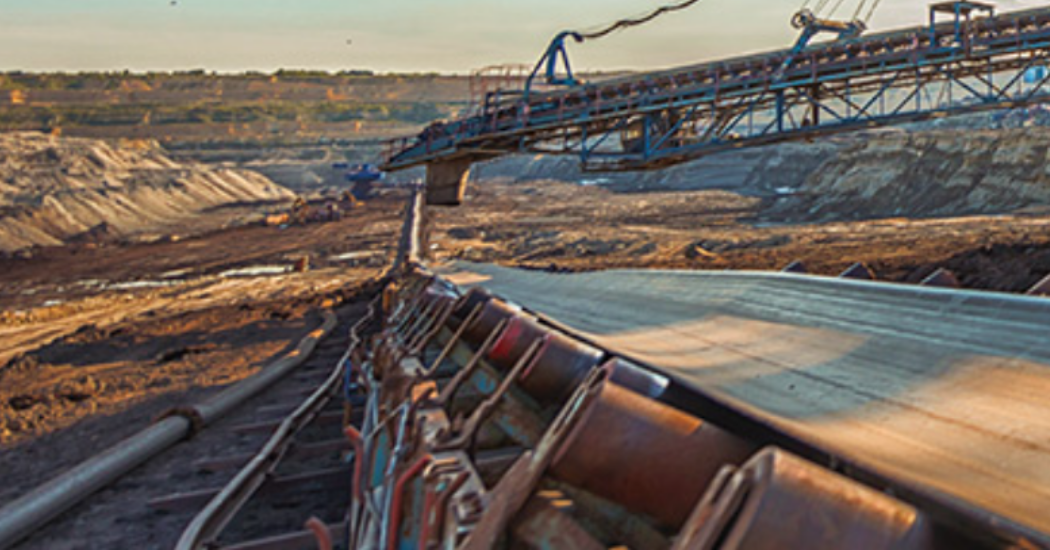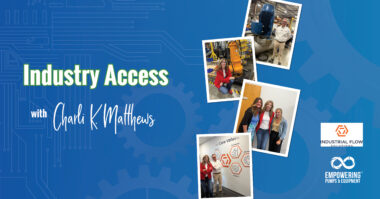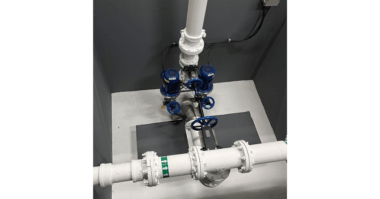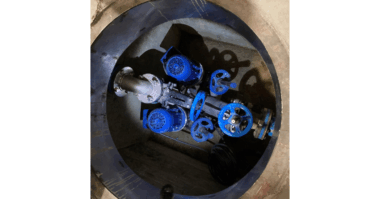Let’s admit it – submersible pumps typically aren’t needed in sparkling, pristine environments. They’re meant to go down into dark, wet sumps, sewers, mines and muddy excavations. For the most part, correctly-selected and sized pumps do a terrific job pumping fluid. But not all fluids and operating environments are equal. Some are harsh and present hazards that require specific pumps to handle them.
What is a “harsh environment?” This refers to applications in which the liquid you are trying to pump contains materials that are especially damaging to a regular pump and/or the environment as a whole. Pumps not designed to handle harsh environments will likely lead to increased repair costs for your pump, as well as downtime that halts production. The good news is that there are pumps available that are built to handle these difficult applications. As you’ll see, BJM Pumps specializes in manufacturing these pumps.
The harsh conditions a submersible pump might encounter tend to fall into four categories: fluids that contain abrasive solids, corrosive fluids, high temperatures and the potential for explosion/fire.
Fluids Containing Abrasive Solids
The need to pump fluids that include abrasive solids is common in a wide variety of jobs. Examples of these fluids include:
- Liquid laden with industrial diamond dust
- Spent drilling mud used in oil and gas exploration
- Slurries that include coal dust and fly ash from coal-fired power plants
- Sand, gravel and silt from quarries
In essence, these abrasive fluids act like sandpaper on the impeller and other metal parts of submersible pumps. This wears normal pumps down quickly and causes a loss of pump performance.
To prevent this abrasive erosion, you should choose pumps constructed with materials that are harder than cast iron. BJM’s pumps optimized for sand, sludge, and slurry applications use 28% high-chrome iron and hardened ductile iron. These materials are far less vulnerable to abrasive and impact damage and still allow for higher head pumping rates.
Another option you may see for abrasive applications are rubber-lined pumps. While rubber-lined pumps may not erode as fast as standard cast iron, they still come with disadvantages, including a pump discharge head of only about 100 feet. Also, any hard objects that enter the pump can destroy the rubber lining. Once damaged, you must replace it with new factory parts.
Corrosive Fluids
Like abrasives, corrosive fluids are also common. For example, seawater, with a pH that can range from 7.5 to 8.4, is slightly to moderately alkaline. Over time, it can corrode cast iron pump parts. Food residues combined with chemicals used in “clean-in-place” food and beverage applications may be either caustic or acidic. Breweries face particular challenges, with acidic (pH 4) wastewater that erode cast iron pump components. The recommended solution for hot acidic or alkaline fluids is BJM’s corrosion resistant 316 stainless steel pumps.
High Temperatures
Fluid temperatures higher than 104°F are hazardous for standard submersible pumps. The hot liquid can “fluidize” the elastomers (in layman’s terms, that means “turn them into goo”) that protect the pump’s on-board motor from water intrusion. Once water enters the motor enclosure, pump failure follows soon afterward. “Warm liquid” pumps can withstand temperatures up to 140°F. But fluids approaching the boiling point need higher level protection. BJM’s Fahrenheit® pumps handle liquid temperatures up to 200°F. These temperatures are common in beverage/bottling plants, meat and dairy processing, and boiler blowdown applications.
Potential for Explosion/Fire
Any environment in which decomposed waste matter can produce methane or other volatile gases are in danger of explosion if equipment produces a spark. These applications include those in chemical plants, oil & gas production, sewage treatment, digested sludge, manure washdown, leachate, distilleries and spirits bottling plants. In these cases, you need an explosion-proof submersible pump. BJM’s explosion proof pumps meet National Fire Protection Association (NFPA) Publication 70, NEC and OSHA requirements for Class I, Division 1, Groups C & D hazardous locations, which means they can’t emit a spark that could trigger an explosion.
As these examples illustrate, hazardous conditions often include combinations of the scenarios above. This makes choosing the right pump to address your specific application more complex.
Industrial Flow Solutions specializes in the design, manufacturing, sales and service of pumping and fluid management solutions for harsh, rugged environments. With OverWatch™ direct in-line pump systems, BJM Pumps® products and Stancor® Pumps and Controls, we offer a comprehensive portfolio of submersible and direct in-line pumps and controls ideal for industrial, commercial and municipal applications.
IFS offers problem-solving solutions for Industries including Mining & Materials, Food Processing, Construction, Commercial Building Trades, Municipal Wastewater, and Power Generation/utilities. Our years of application and design engineering experience provide you the assurance that you are getting the best-fit pump for your application.




